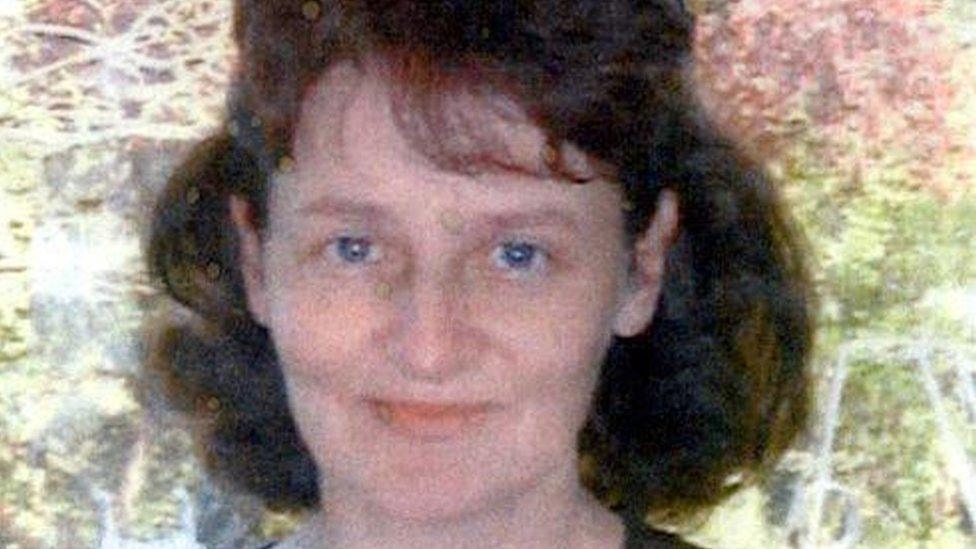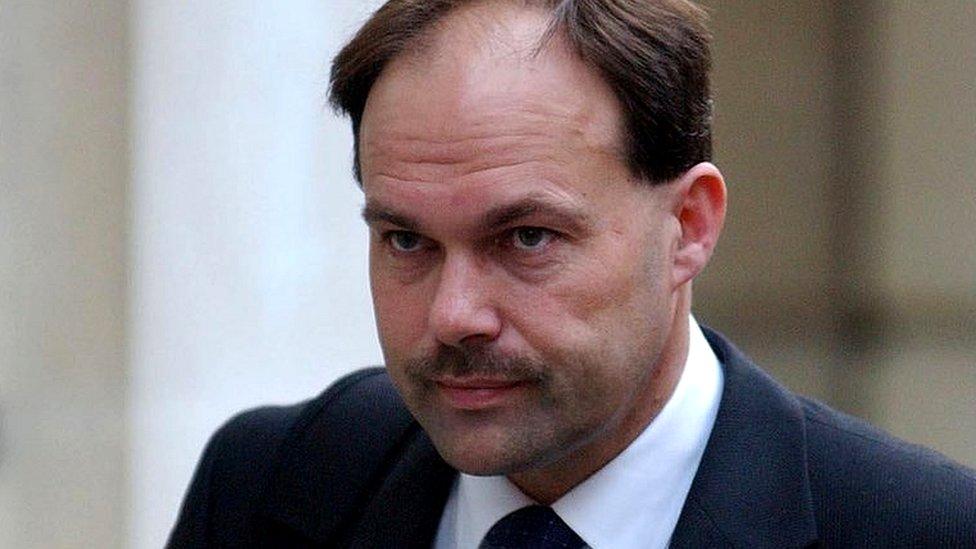Somerset murderer's bid to overturn parole decision refused
- Published

Glyn Razzell was found guilty of his wife's murder at a trial in 2003
A murderer has been refused permission to try to overturn the Parole Board's decision to keep him in prison.
Glyn Razzell, from Somerset, is serving a life sentence for killing his 41-year-old wife Linda Razzell, whose body has never been found.
The Parole Board refused his release in October under Helen's Law that makes it hard for killers to get parole if they refuse to say where they hid a victim.
Razell's legal team claimed the panel's use of Helen's Law was "irrational".

Linda Razzell, originally from Carmarthenshire, disappeared in 2002 and her body has never been found
Razzell and his wife were embroiled in divorce proceedings when she went missing on her way to work at Swindon College in Wiltshire, in March 2002.
His trial heard he faced a financial settlement that he was not prepared to accept.
Razzell denied her killing but was found guilty by a jury and no trace of her body has ever been found.
Under Helen's Law that came into force in January, the Parole Board said he could remain in open prison but could not be released, as result of not revealing where he hid her body.
Deciding judge Patrick Thomas said: "I do not consider that the decision was irrational or procedurally unfair and accordingly the application for reconsideration is refused."
Razzell, who is now in his 60s, will be eligible for another parole decision in about two years' time.

Helen McCourt was murdered by Ian Simms in Billinge, Merseyside, in 1988
The Prisoners (Disclosure of Information About Victims) Act 2020, known as Helen's Law, is named after insurance clerk Helen McCourt, who vanished on her way home from work in 1988.
Ms McCourt's murderer, Ian Simms, was released last year despite not revealing to the authorities where he hid her body.
Her mother, Marie McCourt, spent five years calling for the legislation before it finally gained Royal Assent in November after a series of political and constitutional setbacks.
The law will also apply to paedophiles who refuse to identify those they have abused.

Follow BBC West on Facebook, external, Twitter, external and Instagram, external. Send your story ideas to: bristol@bbc.co.uk , external
Related topics
- Published28 October 2021
